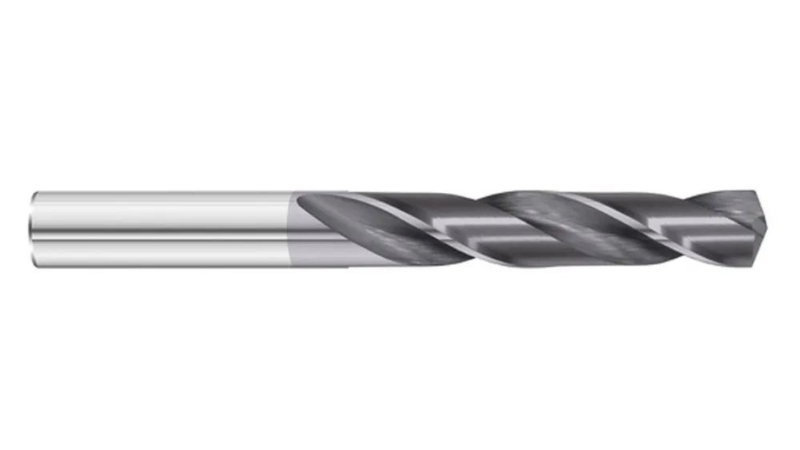If you need to drill through hard metals like stainless steel, titanium, or hardened steel, you need the right drill bit to do the job. Choosing the right drill bit can be challenging, especially if you must become more familiar with the various drill bits available. This article will guide you through how to choose drill bits for hard metal.
Understanding the Types of Drill Bits
Before choosing the right drill bit for hard metals, you need to understand the different types of drill bits available. Several types of drill bits include twist drills, step drills, and hole saws. Each type of drill bit is designed for a specific purpose, and choosing the right one for your project is crucial.
Twist Drills
Twist drills are the most common type of drill bit and are suitable for drilling through most materials, including hard metals. Twist drills come in various sizes and shapes, and they have two flutes that help remove chips and debris from the hole as you drill. They are typically made of high-speed steel (HSS) or cobalt, which makes them durable and long-lasting.
Step Drills
Step drills are designed for drilling through thin materials, including hard metals. They are ideal for creating holes of different sizes without requiring multiple drill bits. Step drills have a conical shape and multiple steps that increase in size as you drill. They are typically made of HSS or cobalt and are durable and long-lasting.
Hole Saws
Hole saws are used for drilling large holes in hard metals. They have a cylindrical shape with teeth on the edge that cut into the metal as you drill. Hole saws are available in various sizes and are typically made of HSS or carbide. They are ideal for creating large holes for plumbing or electrical work.
Get the Job Done Right: How to Choose Drill Bits for Hard Metals
Several factors must be considered when choosing a drill bit for hard metals. Here are some of the critical factors to keep in mind:
Material
The type of material the drill bit is made of is crucial when drilling through hard metals. HSS and cobalt drill bits are suitable for drilling through hard metals, while carbide drill bits are ideal for drilling through harder metals like titanium.
Size
The size of the drill bit is also essential. A larger drill bit will create a larger hole, while a smaller drill bit will create a smaller hole. Choose a drill bit that is the right size for your project.
Coating
Many drill bits have a coating that helps reduce friction and heat when drilling through hard metals. The coating can also extend the life of the drill bit. Look for drill bits with a titanium or black oxide coating for the best results.
Tips for Drilling Through Hard Metals
Drilling through hard metals can be challenging, but it can be done with the right drill bit and technique. Here are some tips for drilling through hard metals:
Use a pilot hole
Before drilling, use a smaller drill bit to create a pilot hole. This will help guide the larger drill bit and prevent it from slipping or wandering.
Use lubricant
A lubricant like cutting oil can help reduce friction and heat when drilling through hard metals. Apply the lubricant to the drill bit before you start drilling.
Use the right speed
Drilling through hard metals requires a slower drilling speed than softer materials. Use a lower drilling speed to avoid damaging the drill bit or the metal.
FAQs
- Can I use a regular drill bit to drill through hard metals?
No, regular drill bits are not designed for drilling through hard metals and will likely break or wear out quickly.
- What is the difference between HSS and cobalt drill bits?
HSS drill bits are made of high-speed steel and suitable for drilling through most hard metals. Cobalt drill bits are made of a blend of cobalt and HSS and are more durable and longer-lasting than HSS drill bits.
- What size drill bit should I use for drilling through hard metals?
The size of the drill bit depends on the size of the hole you need to create. Choose a drill bit that is slightly larger than the diameter of the hole you need to drill.
- What lubricant should I use when drilling through hard metals?
Cutting oil is the best lubricant to use when drilling through hard metals. Apply the oil to the drill bit before you start drilling.
- Can I use a hammer drill to drill through hard metals?
Yes, you can use a hammer drill to drill through hard metals, but make sure you use the right type of drill bit and drilling speed. Hammer drills are designed for drilling into hard materials, and they use a pounding motion to help break up the material as you drill.
Conclusion
Choosing the right drill bit for hard metals is essential for a successful project. Consider the material, size, and coating when choosing a drill bit, and use the right technique when drilling. With the right drill bit and technique, drilling with the right drill bit and technique, drilling through hard metals can be done safely and efficiently. Always use proper safety gear like goggles and gloves when working with power tools.



